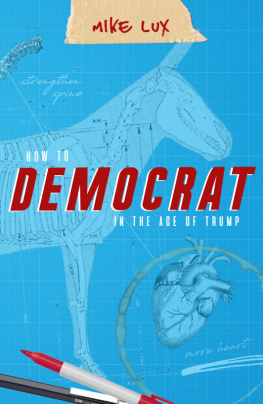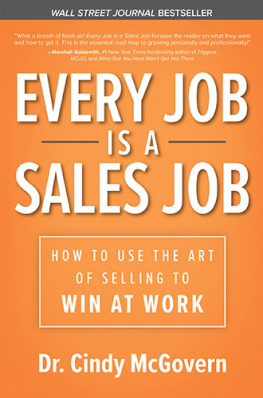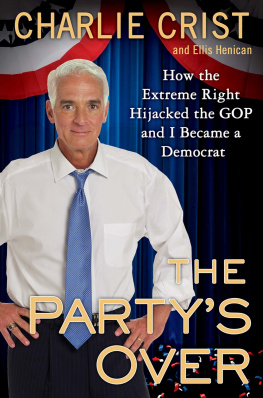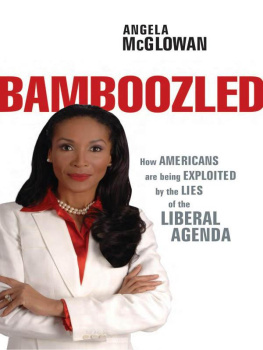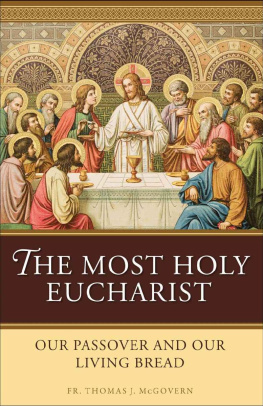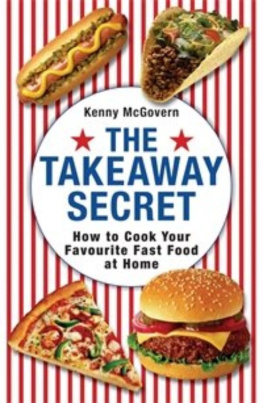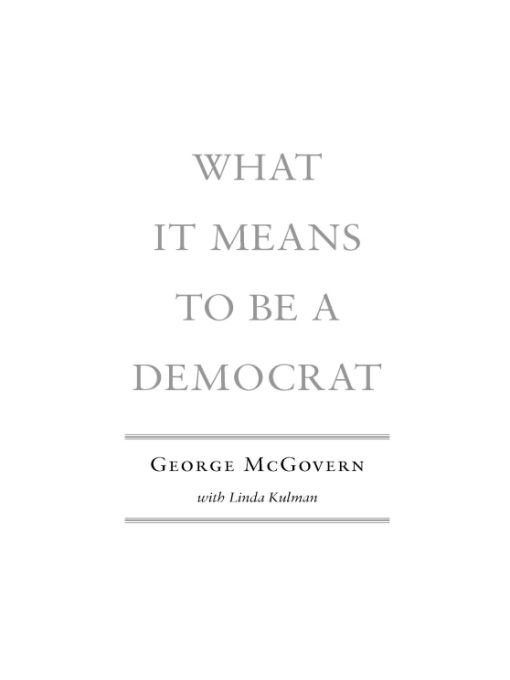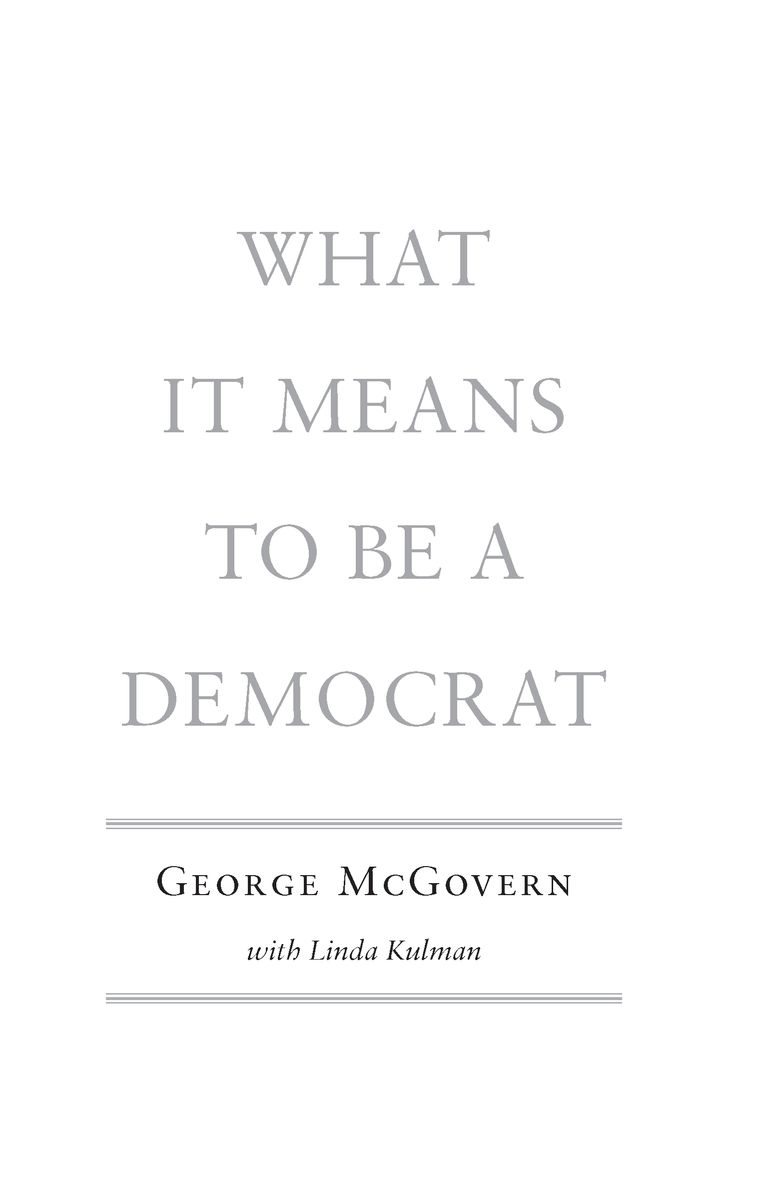Table of Contents
blue
rider
press
BLUE RIDER PRESS
a member of
Penguin Group (USA) Inc.
New York
For Eleanor,
who converted me from Republican
to Democrat.
INTRODUCTION
Whenever I hear the phrase big tent, Im reminded of the tabernacle at the Holiness Campground. It was on the James River, known locally as the Jim River, four miles east of Mitchell, South Dakota, where I grew up. My minister father led a congregation of Wesleyan Methodists, and my family would go to the tabernacle, with its straw-covered floor, every night for two weeks each summer to take part in the crusades. We were all of the same faith, some of us once-a-year worshippers and others daily churchgoers. We came together to hear the same sermons, but each of us took from these homilies what we needed. Some attendees were saved and dropped to their knees in tears at the altar. Others, including me, usually just watched from the back row. I respected the earnestness of the preachers and the worshippers.
The Democratic Party is much the same: millions of people with varying ideas and differing degrees of faith in specific ideals. There are as many definitions of what it means to be a Democrat as there are Democrats.
I am not writing this book to proselytize for politics (and certainly not for religion). Ideologically speaking, anyone who claims to be a Democrat belongs under the same big tent. As Thomas Jefferson, who organized what evolved into the modern Democratic Party, famously said, I never considered a difference of opinion in politics, in religion, in philosophy, as cause for withdrawing from a friend. I dont detest the Democrats who disagree with me, as many of them did in the 1960s and in my 1972 presidential campaign when I fought with all my strength to bring our boys home from the tragically mistaken American war in Vietnam. Presidents Kennedy, Johnson, and Vice President Humphrey all supported this war. All of them were strong Democrats whom I admired and considered friends. If I should meet them in the mystery beyond the grave, Id embrace themeven though they were wrong about Vietnamas was my 1972 opponent, Richard Nixon.
After the turbulent 1968 Democratic National Convention in Chicago, where it was obvious that this spirit of wide embrace was missing both inside and outside the convention hall, I was asked to chair the Democratic Partys Commission on Party Structure and Delegate Selection to make sure that, going forward, our delegates included not just middle-aged white men but women, minorities, and young peopleany of the millions of Americans who felt they were outsiders to the political decision-making process. Although accomplishing that goal did not help me win the 1972 election, we unified our previously splintered party, paving the way for the Democratic administrations of Jimmy Carter, Bill Clinton, and Barack Obama.
In their bestselling book The Emerging Democratic Majority , authors John B. Judis and Ruy Teixeira note that despite my landslide loss, the 72 election presaged a new Democratic majority in the twenty-first century. The authors note that while I lost the popular vote, I brought in several blocs, including nonwhite voters, women, college communities, youth, teachers, clergymen, and other professionals, who today are vital components of the Democratic Party.
As a stand-in candidate for Robert Kennedy after his assassination, I was in Chicago in 1968, when the Democratic Partys New Deal coalition fractured over the Vietnam War. From my fourth-floor suite in the Blackstone Hotel, I watched police officers close in on antiwar protesters. So it was momentous, in 2008, to see a far different Democratic coalition take the stage at Grant Park the night Barack Obama captured the election to become our nations first African American president.
Because there are no official Democratic litmus teststhank heavens!this is one persons view of what it means to be a Democrator perhaps what I think a Democrat ought to be. No one can write a book like this that is not personal, that is not influenced by his own observations and experience. As a child, I disliked the revivalist preachers flamboyant oratorical style, and to this day I flinch when I hear speakersreligious, political, or otherwiserely on passion at the expense of logic.
I was greatly influenced by my parents, who were soft-spoken and measured. They were Ye shall know them by their fruits people. So Im going to tell you as straightforwardly as possible what being a Democrat means to me.
Above all, being a Democrat means having compassion for others. It means putting government to work to help the people who need it. It means using all available tools to provide good health care and education, job opportunities, safe neighborhoods, a healthy environment, a promising future. It means standing up for people who have been kept down, whether they are Native Americans or African Americans, women, immigrants, or the homeless. It means taking care of the mentally ill, of seniors, of vulnerable children, of veteransand making sure all people are treated with respect and dignity.
There has never been a more critical time in our nations history to rely on these fundamental Democratic principles. We are at a crossroads over how the federal government in Washington and state legislatures and city councils across the land allocate their financial resources. Which fork we take will say a lot about Americans and our values. A budget, whether for a family, a Girl Scout troop, a family-owned hamburger franchise, or the entire federal government, is an expression of priorities. And expenditures I consider essential to keep our country great do not line up with the Republicans view, especially since they have been all but overtaken from within by extremists known as the Tea Party. Movement supporters are fueled by a desire to drastically reduce the size and cut the purse strings of the federal government and to force states to be the motors that get things done. In the 2011 budget battle between President Barack Obama and the Democratic Senate on one side and the Republican-led House of Representatives on the other, the Department of Defense was about the only government agency alleged conservatives did not march to the guillotine. How deeply they would like to go is evidenced by Congresss decision to ax $504 millionabout 7 percentfrom the Women, Infants and Children (WIC) program developed by the Senate Select Committee on Nutrition and Human Needs (also known as the McGovern Committee), which I chaired from its establishment in 1968 until 1977. This valuable program provides food and infant formula to low-income mothers and their children through the age of five. As one of the senators who originally proposed WIC and saw it into law, I feel a fathers pride that it has fed roughly 177 million low-income hungry children and mothersand a fathers grief that it has been so drastically cut.
I view the federal government differently not only from Republicans, but often from many Democrats. Born to teetotaling parents who disapproved of Franklin Roosevelts support of the Twenty-first Amendment repealing Prohibition, I began to change my allegiance when I saw how FDRs bold initiativesincluding Social Security, the Federal Deposit Insurance Corporation (FDIC), the Rural Electrification Act, the Works Projects Administration, and the Civilian Conservation Corpsstabilized the country and made hurting Americans whole again.


